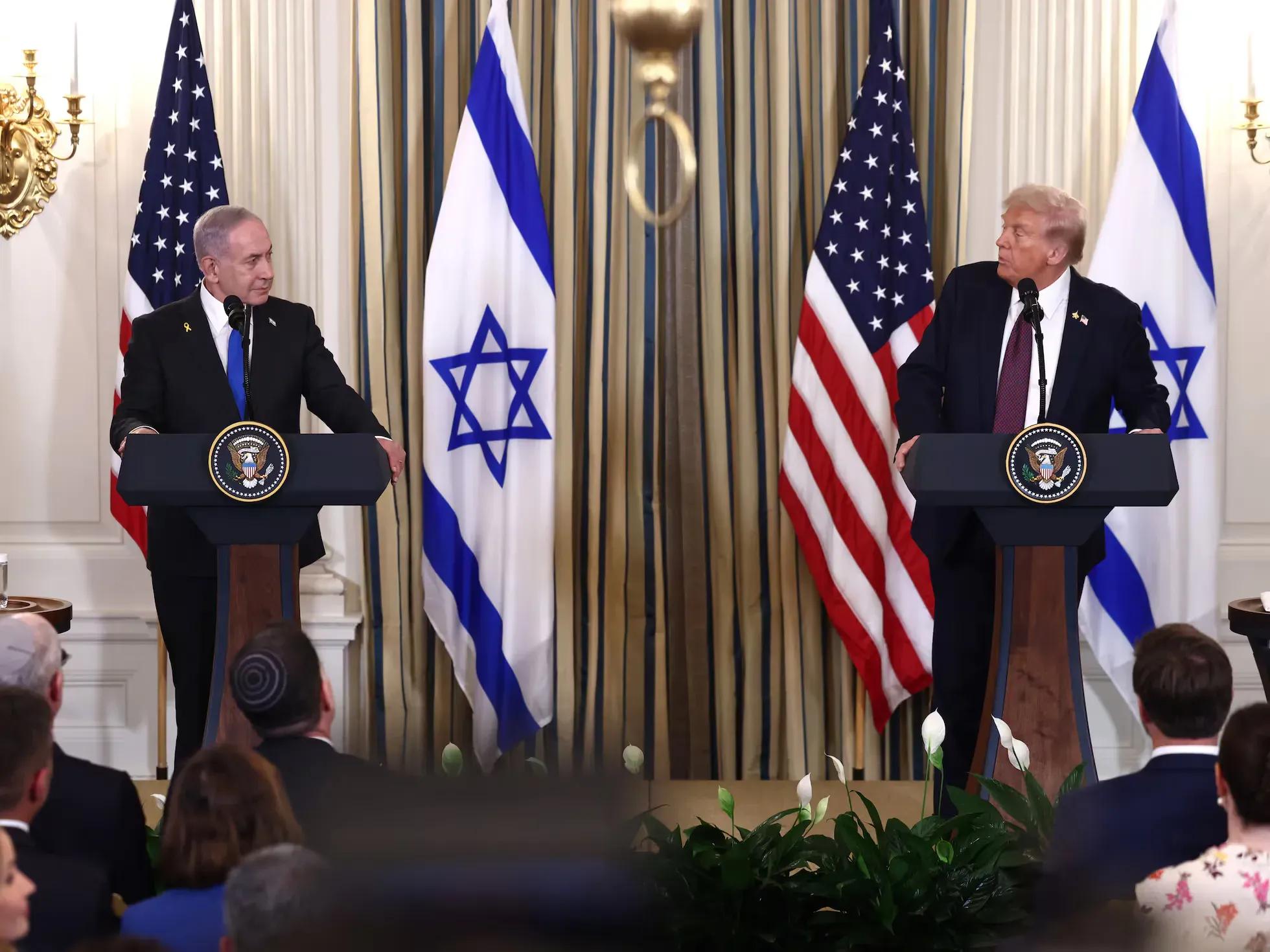The heart of the plan
The proposal by Donald Trump is presented as a detailed roadmap to end the conflict in Gaza. The document sets a strict timeline: within the first 72 hours after signing, all Israeli hostages in the hands of Hamas should be released, in exchange for the release of Palestinian prisoners.
In a second phase, Israel would begin a gradual withdrawal from some areas of Gaza, accompanied by the deployment of an international stabilization force, primarily led by the United States, with the aim of ensuring security and preventing further clashes.
The economic component holds a central place. The plan envisions a special development zone in Gaza, with international investments and a large-scale reconstruction program. During the transition, governance would be in the hands of a technocratic government overseen by a “Board of Peace,” in which Washington and its allies would play a key role.

Netanyahu's response
While Trump claimed that Benjamin Netanyahu had accepted the initiative, the Israeli Prime Minister marked significant differences. He outright rejected the notion that the plan could be interpreted as a path toward the creation of a Palestinian state and reiterated that Israel's security will remain an exclusive matter for his government.
This clarification highlighted the gap between Trump's narrative and the Israeli position. While the Republican leader tried to present a historical consensus, Jerusalem made it clear that its acceptance is partial and that the margins for negotiation are much narrower than was publicly portrayed.
Obstacles and doubts about its viability
The plan faces obstacles both on the ground and politically. The immediate disarmament of Hamas seems difficult to execute without substantial concessions to the Palestinian population, which might perceive the proposal as an external imposition rather than an opportunity for self-determination.
In Israel, the initiative divides opinions. Some sectors see it as an option to reduce the human and military cost of the war, while others consider it a dangerous concession that compromises national security. Internal tensions within Netanyahu's government reinforce these doubts.
On the international stage, the proposal reinforces the role of the United States as the almost exclusive arbiter of the process, generating distrust among neighboring Arab countries and multilateral actors such as the European Union. Egypt and Jordan watch cautiously, warning that a unilateral scheme could exacerbate regional tensions instead of resolving them.
More questions than certainties
On paper, Trump's plan offers a comprehensive vision that combines military, political, and economic measures into a single package. However, the gap between the diplomatic design and the realities on the ground raises serious doubts about its implementation.
The announcement, in any case, managed to reactivate the international debate on Gaza and place Washington back at the center of the discussion. The outcome will depend on whether the involved parties are willing to bear internal political costs in exchange for a swift resolution to the conflict, or if the initiative will remain yet another failed attempt in a long list of unfulfilled peace promises.

Comments